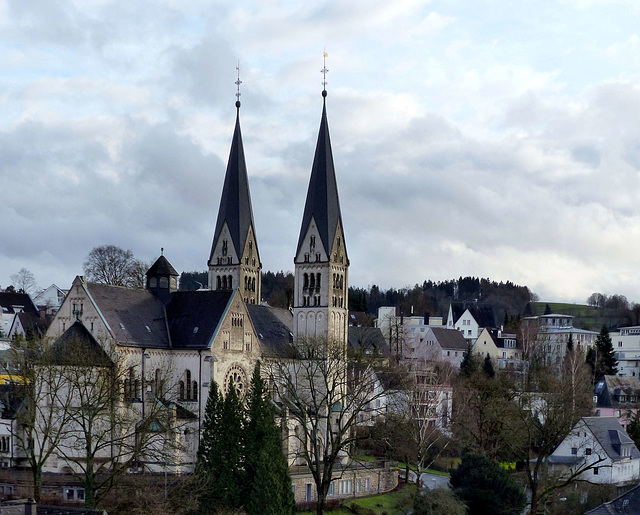Siegen - Nikolaikirche
Siegen - Nikolaikirche
Siegen - Martinikirche
Freudenberg - Alter Flecken
Freudenberg - Protestant Church
Leutesdorf - St. Laurentius
Nickenich - St. Arnulf
Nickenich - St. Arnulf
Kloster Steinfeld
Kloster Steinfeld
Kloster Steinfeld
Kloster Steinfeld
Hillesheim - Augustiner Kloster
Stavelot - Abbaye de Stavelot
Stavelot - Abbaye de Stavelot
Stavelot - Saint Sébastien
Stavelot - Saint Sébastien
Stavelot - Dumoulin
Stavelot - Blancs Moussi
Poulseur - Monaco F1
Poulseur - Monaco F1
Aywaille - Notre-Dame de Dieupart
Aywaille - Notre-Dame de Dieupart
Attendorn - Südsauerlandmuseum
Attendorn - "Hansestadt Attendorn"
Attendorn - St. Johanes Baptist
Attendorn - St. Johanes Baptist
Attendorn - St. Johanes Baptist
Bonn - Schwarzer Nasen Tag
Bonn - Münster
Bonn - Münster
Linz am Rhein - Feinkost
Linz am Rhein - Gumball Machine
Cologne - Schnütgen Museum
Cologne - Schnütgen Museum
Cologne - Schnütgen Museum
Cologne - Schnütgen Museum
Cologne - Schnütgen Museum
Cologne - Schnütgen Museum
Cologne - Schnütgen Museum
Cologne - Schnütgen Museum
Cologne - Schnütgen Museum
Cologne - Schnütgen Museum
Cologne - Schnütgen Museum
Cologne - Schnütgen Museum
Location
Lat, Lng:
You can copy the above to your favourite mapping app.
Address: unknown
You can copy the above to your favourite mapping app.
Address: unknown
See also...
Keywords
Authorizations, license
-
Visible by: Everyone -
All rights reserved
-
189 visits
Siegen - St. Michael


The city of Siegen (pop. 100.000) got its name probably from the
river name Sieg. The city´s history is connected to mining, some mines date back to the late Iron Age.
In 1224 the "Oberes Schloss" ("upper castle") existed already was already standing at this time, in 1303, the town was granted town rights.
In the 16th century, the town was surrounded by walls with 16 towers and three town gates. After the Refomarmation Protestands (Calvinists) and Catholics lived here side by side. A sometimes violent neighborhood. Mid 18th century the wealthy area was part of the Principality of Orange-Nassau, ruled by William I, who was Prince of Orange-Nassau, Prince of Orange and the first King of the Netherlands.
In 1815 Siegen was assigned to the Prussian Province of Westphalia.
In 1577, Peter Paul Rubens, the the best known son of the city, was born here to the Calvinists Jan Rubens and Maria Pypelincks, who had fled Antwerp.
The Catholic parish church St. Michael is pretty young. Built 1903-1906 in Neo-Romanic style, it does look older.
river name Sieg. The city´s history is connected to mining, some mines date back to the late Iron Age.
In 1224 the "Oberes Schloss" ("upper castle") existed already was already standing at this time, in 1303, the town was granted town rights.
In the 16th century, the town was surrounded by walls with 16 towers and three town gates. After the Refomarmation Protestands (Calvinists) and Catholics lived here side by side. A sometimes violent neighborhood. Mid 18th century the wealthy area was part of the Principality of Orange-Nassau, ruled by William I, who was Prince of Orange-Nassau, Prince of Orange and the first King of the Netherlands.
In 1815 Siegen was assigned to the Prussian Province of Westphalia.
In 1577, Peter Paul Rubens, the the best known son of the city, was born here to the Calvinists Jan Rubens and Maria Pypelincks, who had fled Antwerp.
The Catholic parish church St. Michael is pretty young. Built 1903-1906 in Neo-Romanic style, it does look older.
- Keyboard shortcuts:
Jump to top
RSS feed- Latest comments - Subscribe to the comment feeds of this photo
- ipernity © 2007-2025
- Help & Contact
|
Club news
|
About ipernity
|
History |
ipernity Club & Prices |
Guide of good conduct
Donate | Group guidelines | Privacy policy | Terms of use | Statutes | In memoria -
Facebook
Twitter

Sign-in to write a comment.